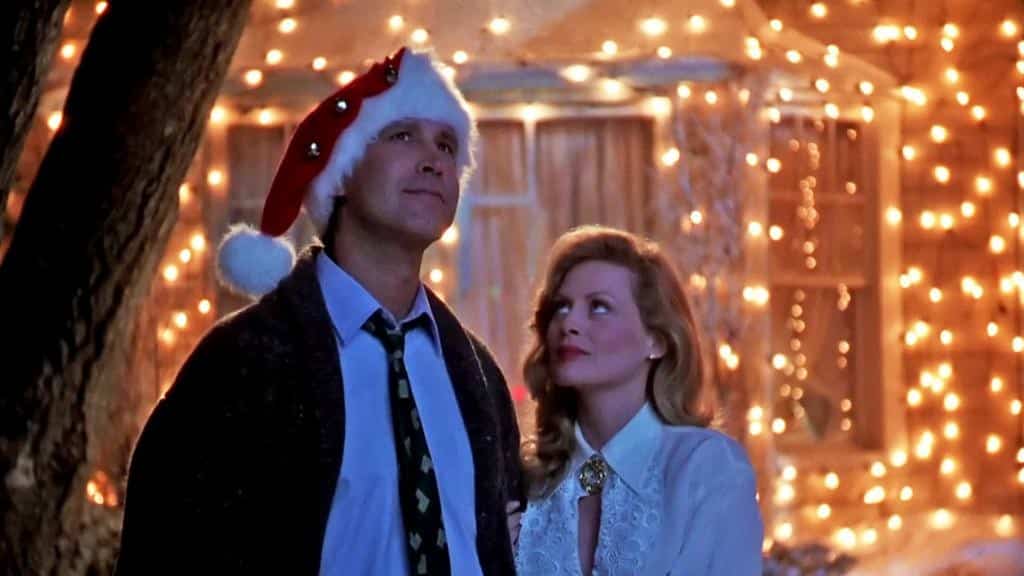
A cherished holiday tradition, in my household, was sitting down on Christmas Eve for an annual family viewing of National Lampoon’s Christmas Vacation. My dad, a more stoic figure, would always chuckle through Clark Griswold’s holiday light display breakdown and fall apart in laughter at the moment that Clark (played by Chevy Chase) would punch a plastic Santa in the face. Watching my dad laugh at that scene was just as much a tradition as the viewing, itself.
Christmas Vacation turns 30 this year and I’ve been reflecting a lot on the film. About my dad’s amusement at Santa decoration abuse and what it was like to grow up with the Griswolds. Christmas Vacation is arguably the most popular of the National Lampoon films, if not the most enduring. The film is widely quoted, fun for the whole family, and a regular feature of any self-respecting holiday movie night.
For the uninitiated, the 1989 comedy stars Chevy Chase, Beverly D’Angelo, Juliette Lewis, and Johnny Galecki as the much beloved and all too relatable Griswold family. Clark Griswold (Chevy Chase) is determined to pull off the perfect family Christmas for his children and extended family. Despite his best efforts, the chaos of the holidays can’t be avoided and the event goes up in smoke.
As holiday classics become dated, cringey, and new favorites rise to fill those spaces, it’s a marvel that Christmas Vacation has managed to hold audiences for 30 years. In a culture that likes to claim that comedy has been made impossible by our higher social ethics, the film is the example that proves that comedy ages well when it is capable of speaking to anyone. For 30 years, Christmas Vacation has been universally relatable.
While Christmas Vacation turns 30, this writer is in her late-20s and suddenly relates to Clark Griswold punching a plastic Santa in the same way that her father does. We all feel the pressure of the holidays and holiday magic is suddenly recognized as a consuming labor of love, as we grow older. Christmas Vacation as a film for all the family grows up with the viewer just as the viewer grows to experience the holidays in a new light. Like a good eggnog, it is sweet but still spiked.
In particular, one recalls the scene where Clark Griswold is mistaken for Santa Clause by his young niece, Ruby Sue. A heartfelt conversation between the two reveals that Ruby Sue has taken more notice of her parents’ financial struggles than any of the adults realize. She claims that all that Santa stuff is “just bull” and that she and her brother can be good all year and still not experience the holiday magic. Clark restores her childlike wonder and is reminded that Santa Claus is the keeper of those perfect childhood memories. That scene is the crux of the film and solidifies a message that we can all cling to.
The enduring power of Christmas Vacation is that the film understands the humor of facing the in-laws, killing yourself to provide the perfect family Christmas, and the practical pressures of time, money, and personalities that we all grapple with as we try to recreated the holiday magic of our youth. For 30 years, Christmas Vacation has been speaking to that feeling in a way that other holiday comedies just don’t. And it’s all done with a laugh and the reminder that we can’t take it all so seriously.
Tis the season to be merry and tis the season to enjoy Christmas Vacation over and over again!
Caitlin Kennedy has been writing since 2014 and you can find her work on Film Inquiry, The Financial Diet, Nightmarish Conjurings, and many others. Follow her on Twitter at @CaitDoes






